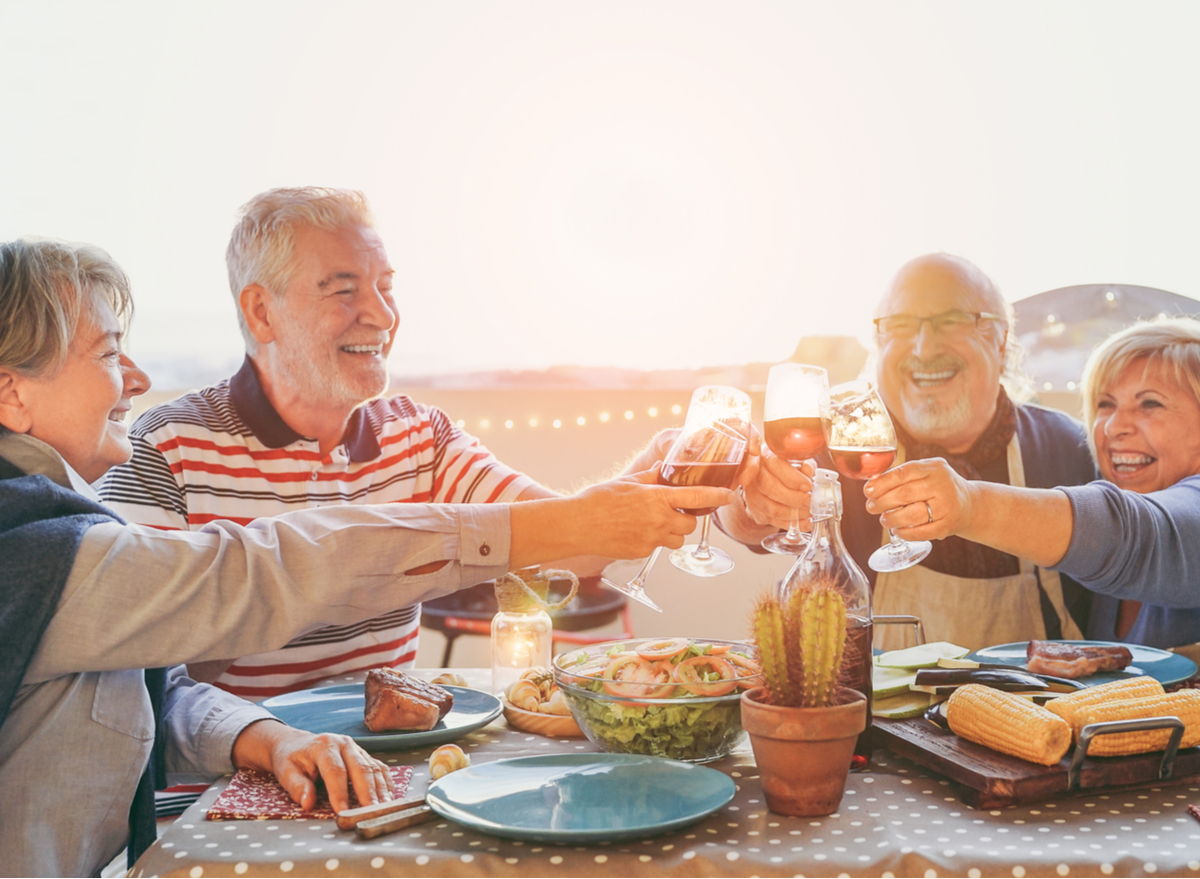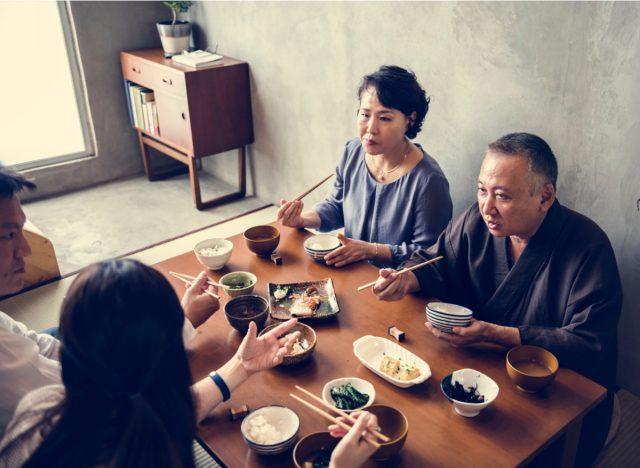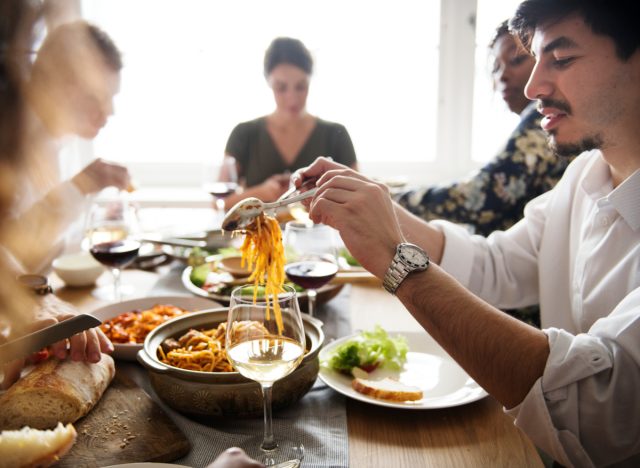The #1 Reason the World’s Longest Living People Don’t Eat Alone

In a country where people are commonly suffering from diseases like cancer, heart disease, Alzheimer’s, and diabetes, we may be able to learn more about health and happiness from the parts of the world known as the Blue Zones.
These five regions have the highest populations of centenarians in the world and are considered the healthiest places that exist today. Things like diet, movement, purpose, and community are the pillars by which many of these communities achieve their longevity.
According to researchers associated with the Blue Zones, having close relationships and enough social interaction on a regular basis are important predictors of how long someone will live. This is why it’s no surprise that many people in these Blue Zone communities eat the majority of their meals with family or friends.
Continue reading to learn more about three of the five Blue Zones and how they approach the integration of food, family, and friendship. And for more healthy eating tips, check out 9 Foods the Longest-Living People in the World Eat.
Okinawa, Japan

The community of Okinawa thrives on a sense of purpose in every area of their lives, especially when it comes to food and friendships. When it comes to eating, Okinawans intentionally practice the art of hara hachi bu, which means that they only eat until they’re 80% full at every meal.
And when it comes to friendship, they see community as one of the foundational pillars of a healthy life. Many Okinawans practice a tradition called Moai, which are small support systems that you have throughout your entire life. These groups begin in your childhood and extend into the rest of your life, and these communities provide emotional, mental, physical, and even sometimes financial support for one another.
Known sometimes as a second family, Moai groups often share meals together and meet on a regular basis, something that helps Okinawans live longer, healthier lives in an intentional community.
Nicoya, Costa Rica

The Nicoya peninsula is another Blue Zone region and home to some of the world’s longest-living people. While researchers have attributed Nicoyans’ health to things like getting plenty of sunlight and time in nature, eating light and healthy dinners, and drinking a lot of water, they’ve also discovered that face-to-face interaction plays a large role as well.
According to Blue Zone researchers, people in Nicoya center much of their life around their families and community. They often have multiple generations living in one home together, and they usually follow somewhat of an “open door” policy when it comes to spending time with neighbors and friends.
Nicoyans also value the importance of family. Because of this, most of the elderly populations in this community are taken care of by their children, grandchildren, or other people in the family.
Sardinia, Italy

Sardinia, which is an island located in Italy, is another home to many of the world’s centenarians. According to Blue Zone researchers, Sardinians achieve their longevity through habits like eating mostly plant-based, going on daily walks and saving time for regular movement, and even drinking one to two glasses of red wine every night.
Along with these daily habits, Sardinians also put a high value on their families, friends, and neighbors. Researchers have found that Sardinians put their elders first, put their family first, and set aside daily time for laughing with their community. Sharing meals with their friends and family on a regular basis may be a key to their happiness, longevity, and overall health.